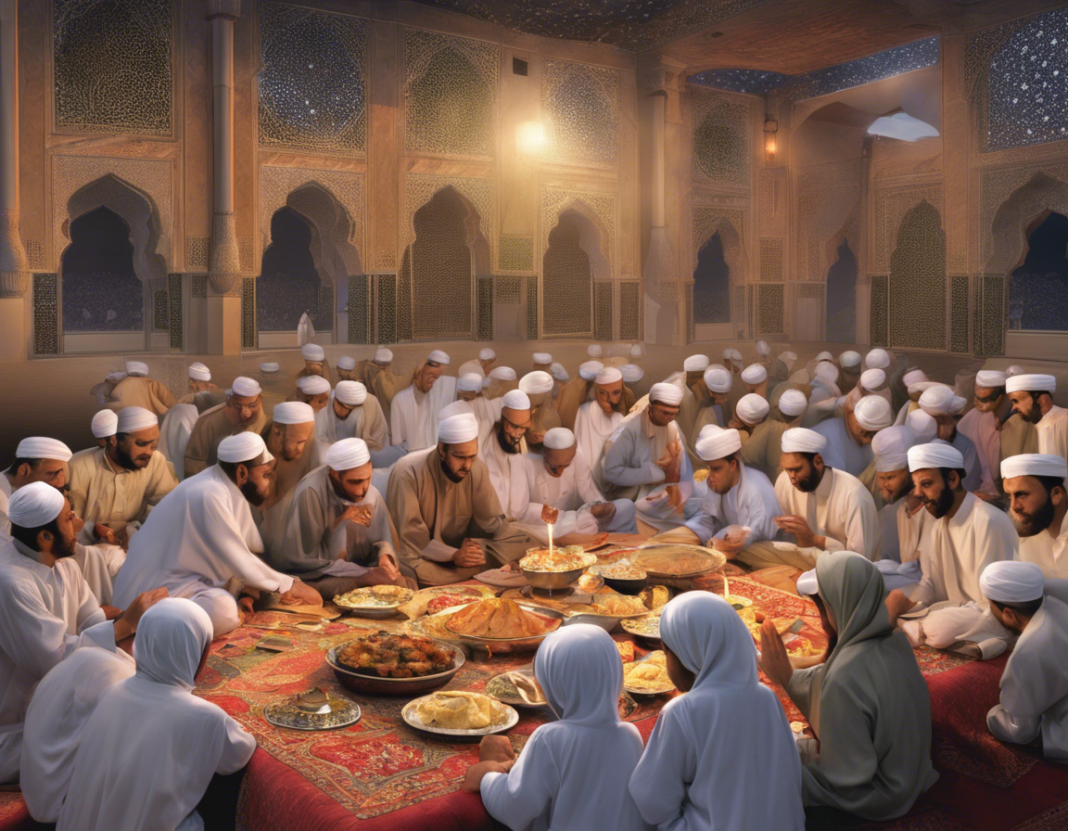As we enter the holy month of Ramadan, a time of fasting, prayer, and reflection for Muslims worldwide, one of the most important practices is the breaking of the fast with the Iftar meal. Before partaking in the Iftar meal, it is a common practice to recite a dua (supplication) to seek blessings and express gratitude. The Iftar Ki Dua holds great significance in the hearts of believers and is believed to bring immense rewards and blessings.
The Significance of Iftar Ki Dua
The act of breaking the fast is not just a physical one but also a spiritual experience. By reciting the Iftar dua, believers acknowledge the blessings of the food before them and express gratitude to the Almighty for providing sustenance. It is a moment of reflection and connection with God after a day of fasting, and the dua serves as a reminder of the importance of gratitude and humility.
The Traditional Iftar Ki Dua
The traditional Iftar dua that is commonly recited is:
“Allahumma inni laka sumtu wa bika aamantu wa alayka tawakkaltu waala rizq-ika-aftartu“
This translates to:
“Oh Allah! I fasted for You, and I believe in You, and upon You, I rely, and with Your sustenance, I break my fast.”
Additional Dua for Iftar
Apart from the traditional Iftar ki dua, there are other supplications that can be recited during the evening meal. These include:
- “Allahumma ati nafsi taqwaaha, wa zakkiha anta khayr man zakkaha, anta waliyyuha wa maulaha“
-
Translation: “Oh Allah, grant my soul its piety, and purify it, for You are the best to purify it, You are its Guardian and Master.”
-
“Allahumma innaka
afuwwun tuhibbulafwa fa`fu anni“ - Translation: “Oh Allah, You are the Forgiver, You love forgiveness, so forgive me.”
Tips for Making Dua During Iftar
-
Intention: Make a conscious intention before reciting the dua, focusing on the purpose of seeking blessings and expressing gratitude.
-
Heartfelt: Recite the dua with sincerity and humility, acknowledging the blessings of the food and the opportunity to break the fast.
-
Consistency: Make it a habit to recite the dua consistently during Iftar, forming a deeper connection with the act of breaking the fast.
Frequently Asked Questions (FAQs)
Q1: Can I recite the Iftar dua in any language, or is Arabic preferred?
A1: While Arabic is the language of the Quran and many duas are traditionally in Arabic, it is acceptable to recite the dua in your native language if you do not understand Arabic. The most important thing is sincerity and understanding of the meaning.
Q2: Is there a specific time to recite the Iftar dua?
A2: The Iftar dua should ideally be recited just before breaking the fast. It is recommended to recite it with the intention of seeking blessings and expressing gratitude at that moment.
Q3: Are there any specific etiquettes to follow while reciting the Iftar dua?
A3: It is recommended to raise your hands while making dua, facing the Qibla (the direction of the Kaaba in Mecca), and ensuring that your heart and mind are focused on the supplication.
Q4: Can I make personal dua during Iftar in addition to the prescribed ones?
A4: Yes, you can and should make personal duas during Iftar, as it is a time when supplications are readily accepted. Ask for blessings, forgiveness, and guidance, and remember to include the wider Muslim community and humanity in your prayers.
Q5: Is it permissible to recite dua quietly or is it better to do so aloud?
A5: You can recite the dua in a voice that is audible to yourself, whether that be silently or aloud. The most important aspect is the sincerity and mindfulness with which the dua is recited.
In conclusion, making dua during Iftar is a beautiful and spiritually enriching practice for Muslims during the holy month of Ramadan. The Iftar ki dua holds a special place in the hearts of believers, serving as a moment of gratitude, reflection, and connection with the Divine. By understanding the significance of these supplications and reciting them with sincerity, believers seek blessings and rewards not only in this world but in the Hereafter as well.
